Month of the Falcon – Bonus shots – Holgate
Our barrier island predators
by Ben Wurst, Habitat Program Manager
New Jersey’s geographic location along the Atlantic Coast helps make it a unique place for wildlife and a globally recognized stopover for migratory birds, bats, and invertebrates. Peregrine falcons are a common sight along our barrier islands during fall and winter months. Peregrines hang out in areas with high prey densities and many of those areas are our coastal and urban areas. Those areas have large flocks of shorebirds, ducks, blackbirds, pigeons, and common backyard birds.
One photographer, Northside Jim, has been documenting peregrines on Long Beach Island. I first started following Jim’s blog, “Readings from the Northside,” after seeing his attraction to capturing the natural ecology of the beach on Long Beach Island, and especially his attraction to taking photos of the ospreys that he saw flying overhead in North Beach. I later contacted Jim and he came out osprey banding with me on Barnegat Bay to “meet” the ospreys that he was seeing fly overhead. Jim’s been hooked ever since!
His compassion for wildlife is apparent as well. Rescuing injured gulls, showing photos of boats that are way too close to marine mammals, etc… In addition, Jim’s clever and witty writing style, photo captions and subject matter make learning about wildlife and the natural environment enjoyable and entertaining. Most importantly, his audience is mostly tourists on LBI, so educating them about our impacts on wildlife and coastal barrier islands is key.
Jim doesn’t like to call himself a photographer, but in fact he is a very talented one, and it’s his photo-journalistic style that captures the eye. This past fall Jim photographed several peregrine falcons in the Holgate Unit of Edwin B. Forsythe NWR, which is at the south end of Long Beach Island. One of his most remarkable discoveries was a juvenile (first photo below) peregrine that I banded in the summer of 2013. “Bridgette” was banded with an auxiliary band reading “59/AN (black/green),” so Jim was able to read the band from his photos. She was from a new nest that we built last spring as a mitigation project for the construction of a bridge over the Garden State Parkway. A pair a had previously nested underneath the bridge but young never fledged the nest. We had no idea if the pair would use the new platform after we installed it, but they did! You can read more about this encounter on Jim’s blog. Enjoy!
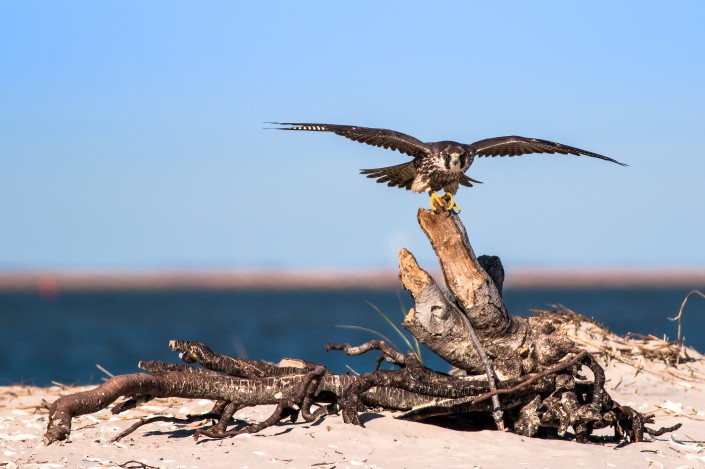
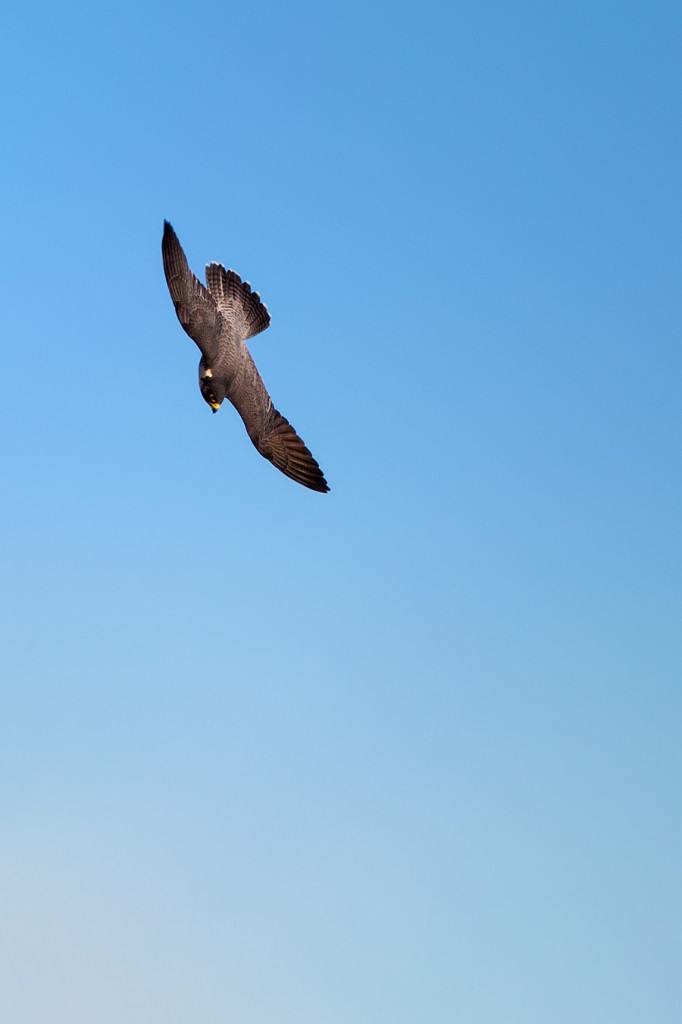
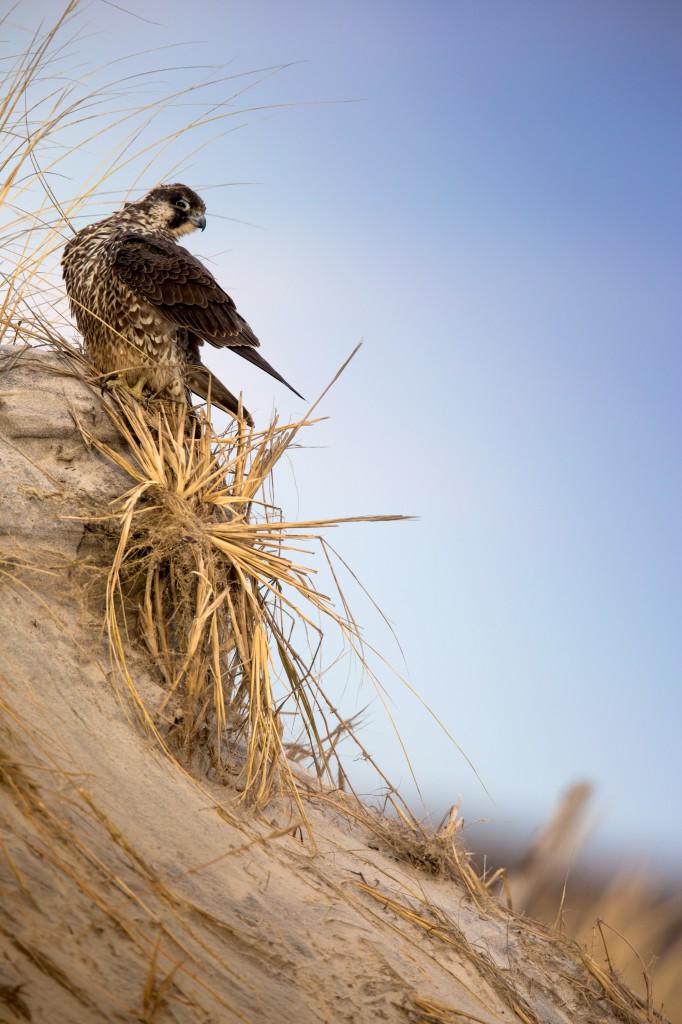
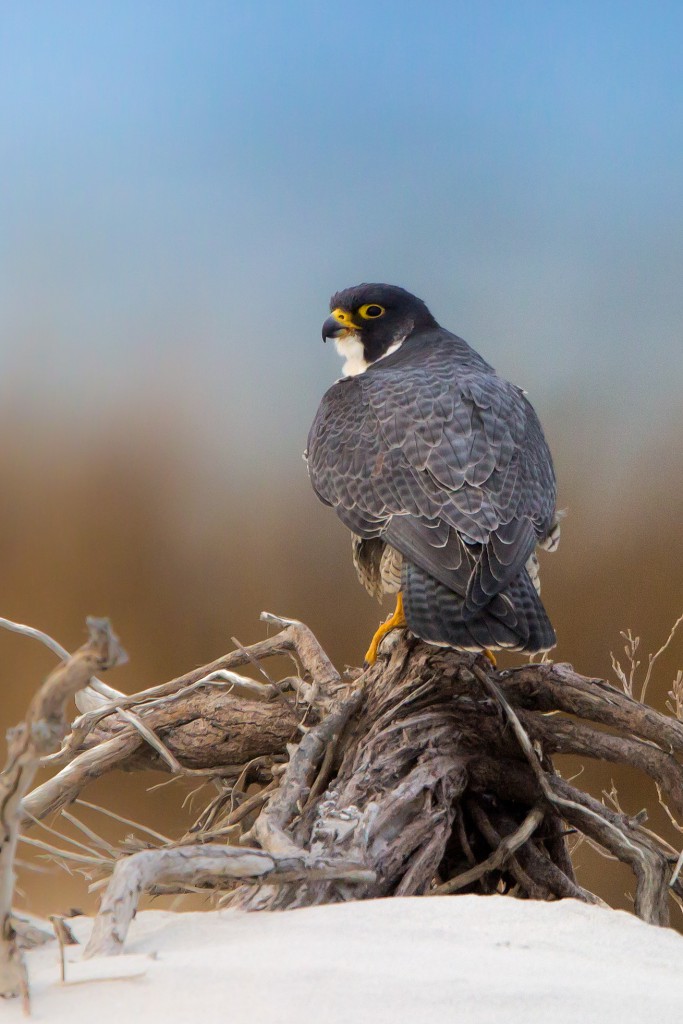
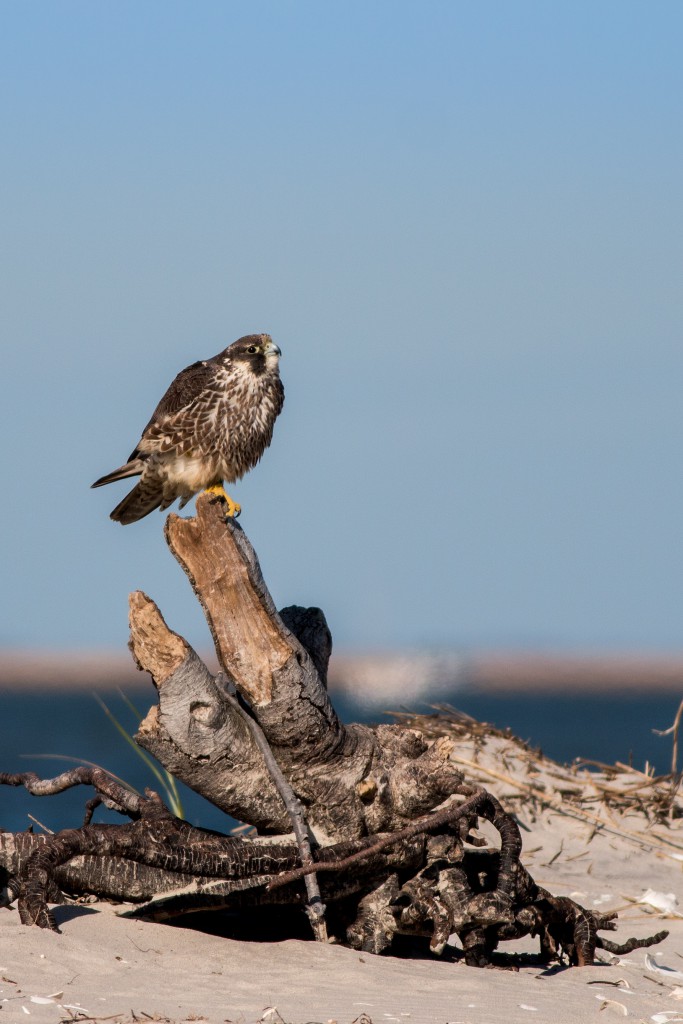
Thank you, Jim, for all of your efforts to help promote our mission of protecting NJ’s rare wildlife. Make sure to check out his blog to see more spectacular photography: http://exit63.wordpress.com/
Discover more from Conserve Wildlife Foundation of NJ
Subscribe to get the latest posts sent to your email.